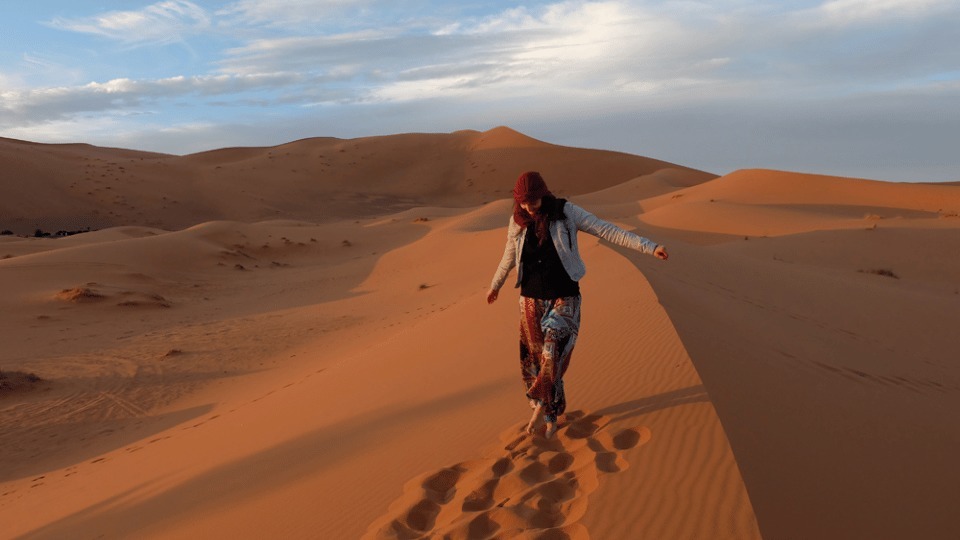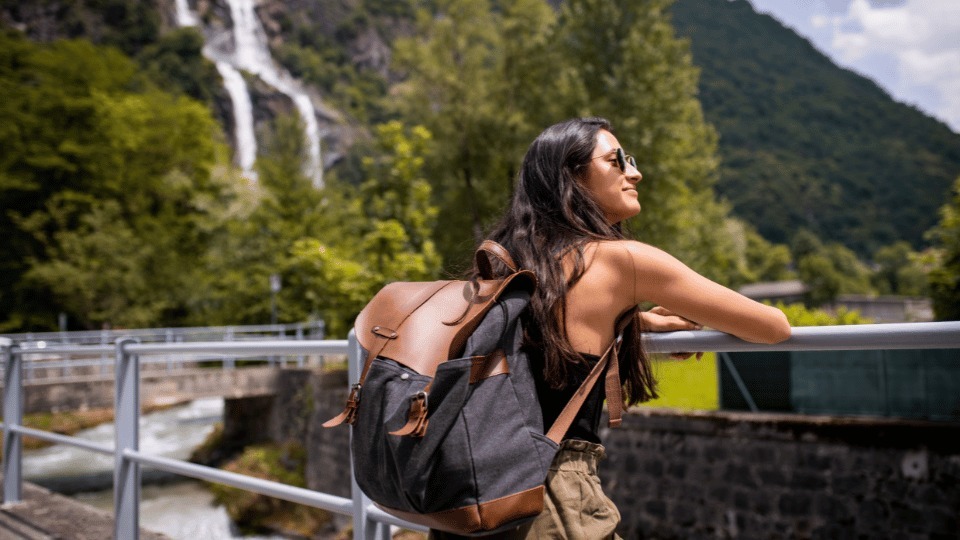Common Fears Of Solo Travel
Solo travel can be an incredibly rewarding experience, offering opportunities for personal growth, self-discovery, and adventure. However, it's not uncommon for people to have fears and concerns about traveling alone. Here are some of the most common fears of solo travel and how to address them:
Being lonely: One of the biggest fears of solo travel is the possibility of feeling lonely or isolated. It's natural to crave companionship and social interaction, and the idea of being alone in a foreign place can be daunting. However, solo travel can also offer opportunities to meet new people and make meaningful connections. Consider staying in hostels, attending local events, or you can meet like-minded travelers on apps like GAFFL.
Being safe: Another common fear of solo travel is the possibility of encountering danger or harm. While it's true that solo travelers may be more vulnerable to certain risks, there are steps that can be taken to minimize the likelihood of negative experiences. Research your destination ahead of time and familiarize yourself with local customs and laws. Stay aware of your surroundings and trust your instincts. Consider purchasing travel insurance to protect yourself in case of emergency.
Getting sick: Falling ill while traveling can be a major concern, especially when traveling alone. To prevent getting sick, make sure to stay hydrated, get enough sleep, and practice good hygiene. Pack any necessary medications and consider getting vaccinated before your trip if needed. If you do get sick, don't hesitate to seek medical help.
Getting bored: It's also possible to feel bored or unstimulated when traveling alone. Without someone else to bounce ideas off of, it can be challenging to come up with new activities or experiences. However, this is an opportunity to get creative and explore new interests. Consider taking a class or workshop, trying a new hobby, or engaging in some form of creative expression.
Too expensive: Finally, the cost of solo travel can be a concern for many people. Without someone else to split expenses with, it's possible for costs to add up quickly. However, there are ways to keep costs down. Look for budget-friendly accommodations, such as hostels or Airbnbs. Consider traveling during off-peak seasons or using discount travel sites to find deals on flights and activities. Or, you can connect with a travel buddy to split your expenses with.
While there are certainly valid fears associated with solo travel, many of these concerns can be addressed with careful planning and preparation. By taking steps to ensure your safety and wellbeing, you can have a fulfilling and enjoyable solo travel experience.
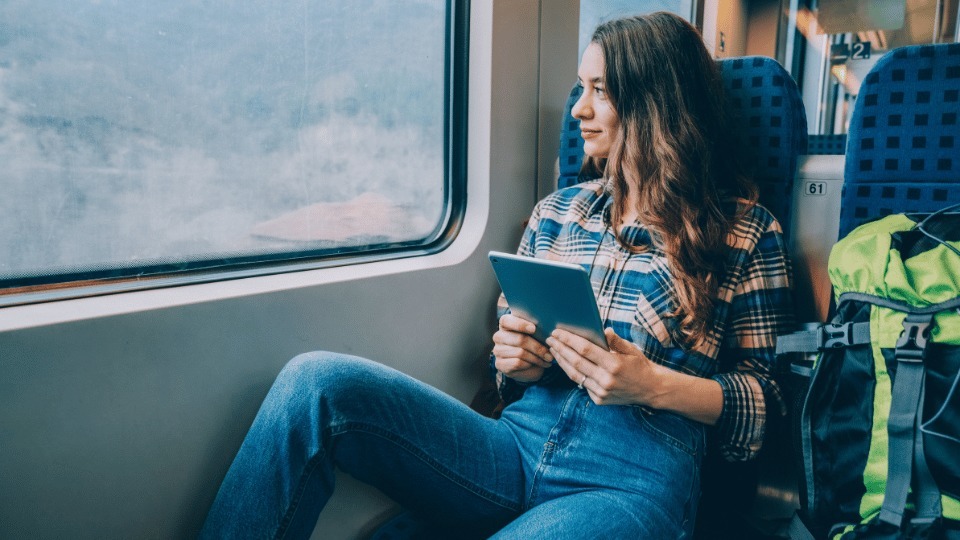
Key Solo Travel Statistics In 2023, Rise of solo travel, trends and data.
The following statistics were sourced from The Flash Packers Wonderful Weirdness of Solo Travel: Statistics & Trends.
Solo travel accounts for up to 18% of global bookings.
76% of travelers have either. traveled alone already or are considering doing so
Google searches for the term "solo travel" tripled between Jan 2015 and Jan 2023
Over 8 million posts on Instagram are tagged with #solotravel
Solo travel is experiencing a rapid recovery from pandemic restrictions
52% of solo travelers. say they'd be interested in a group tour
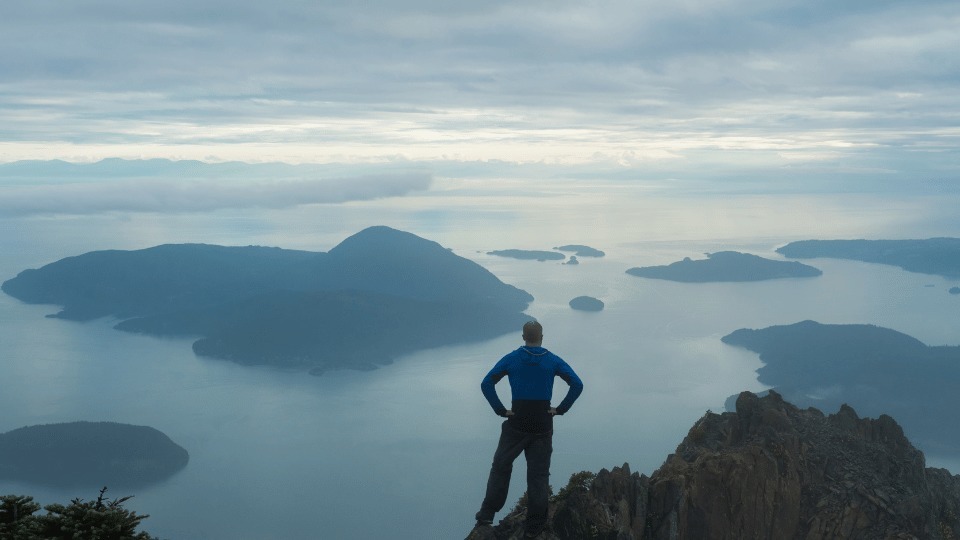
10 Steps For Planning Your First Solo Trip
Now that we have addressed common fears and how to overcome them, as well as highlighted the growing popularity of solo travel, you might be feeling more confident and excited to embark on your own adventure. Well, get ready because it's time to dive into our ten top tips for planning a first solo trip that you will never forget!
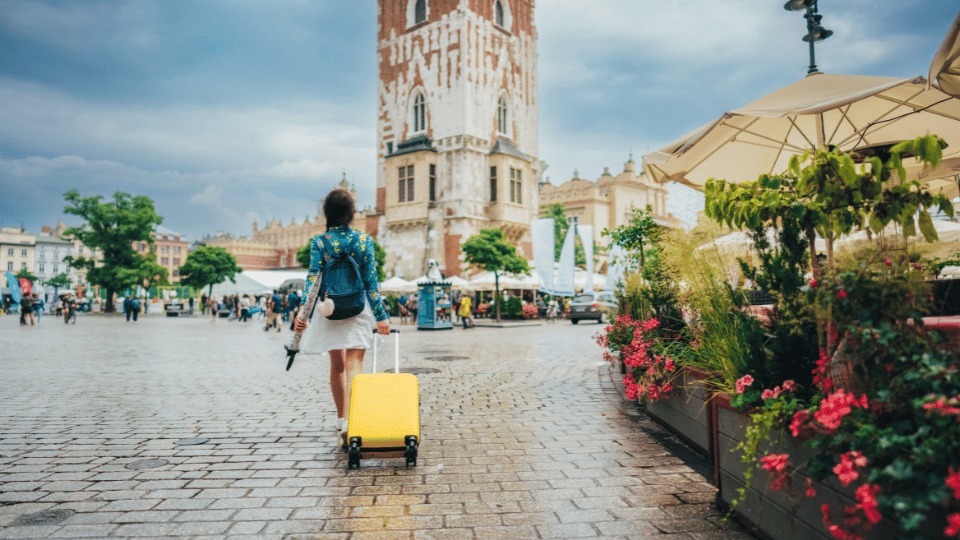
Choose your destination
Decide where you want to go. Research different places, and make a list of the destinations that interest you the most. Consider factors such as the weather, the culture, the language, and your budget. It’s also important to go easy on yourself for the first time.
So what are some ways you can take it easy when planning the destination for your first solo trip? Here are some things to consider:
Pick a destination where you speak the local language: A language barrier can be a bit of a hurdle for a first time solo trip, so it's a good idea to pick a destination where you speak the local language or at least have a basic understanding of it. If you're not fluent, don't worry! You can always download helpful translation apps like Google Translate to make communicating a breeze.
Choose a destination with an established tourism infrastructure: You want to make sure there are plenty of accommodations, restaurants, and transportation options that cater to travelers. This will make your trip much smoother, safer, and less stressful. Also, if you're looking to meet other travelers or find some travel buddies, it's a great idea to choose a popular backpacking location. These spots usually have plenty of other travelers around, so you won't feel isolated or alone.
Pick A Centralized Location: Choosing a centralized location for your first solo trip ensures that it’s easy to explore the city and take part in activities. This can help you avoid long commutes and make the most of your trip.
Book a short trip: For your first solo trip, booking a short trip can help you get a feel for solo travel and adjust to being on your own. You can always plan for a more extended trip in the future.
Once you become a more experienced solo traveler, you can decide on your next destination in a variety of different ways. Here are a few examples from seasoned solo travelers:
“Each time I meet someone who raves about a country that I haven’t been to, I get intrigued and add it to the list. I love going to places that I don’t know much about and finding out more when I’m there.” - Lisa
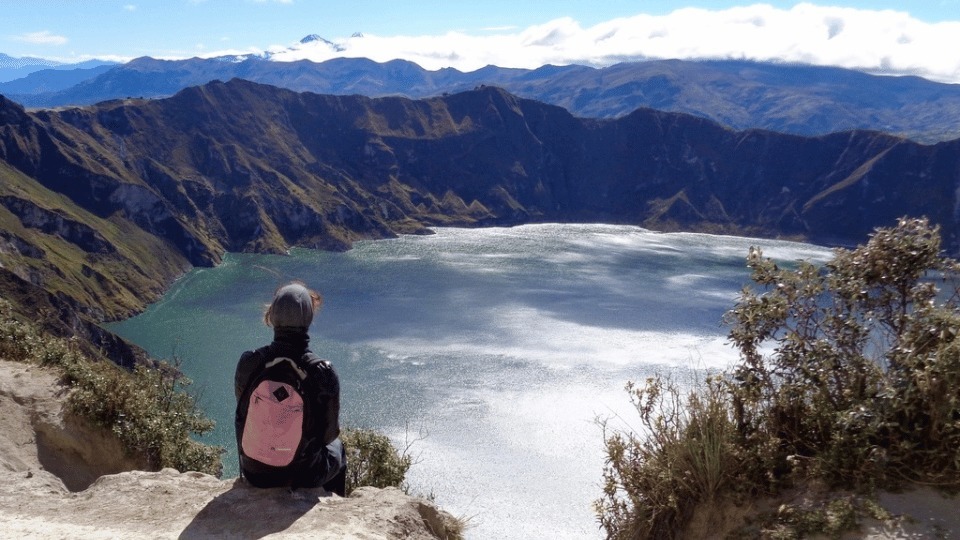
“I begin by researching what to see and do in that location, then decide to travel there. Then I look for flight deals and finally book hostels and activities, leaving some room for improvisation. I like to be surprised by the places I visit and learn about things that don't appear in travel guides.” - Estela

“I do a lot of research before each trip. I short-list key places and things I want to do and then build an itinerary with the time I have. But I would always say leave some room for spontaneity. There have been many times I’ve had a set plan and then got chatting to locals or guides and ended up doing something or going somewhere off the beaten track based on their recommendations that turned out way better than anything I had planned!” - Melissa
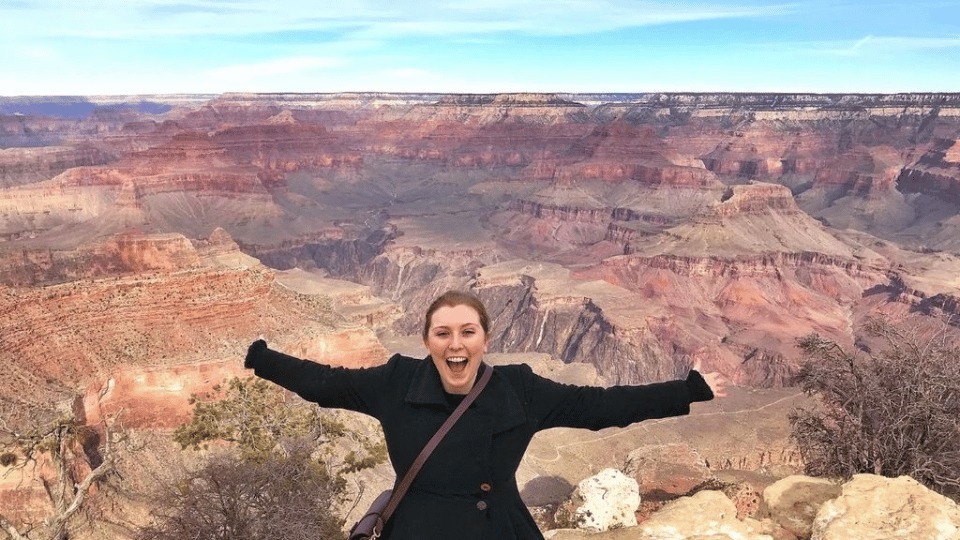
“Where and for how long really go hand in hand. Every time, I’d be craving a particular travel vibe or destination. After making a list of potential destinations, settling on one is usually determined by a set of factors such as my budget, the season, how much time I could dedicate to that trip, and so on. For instance, in early 2020, I wanted to go on a birthday trip, and I wanted somewhere exotic and included a combo of everything I liked. I was left to decide between the Philippines and Cape Town, and eventually, I settled on the latter because I could only take 10 days off from work. Given that I wanted to go island hopping in the Philippines and the flights to and from Cairo would waste around 2 days already, it wasn’t really an option.” - Nadine
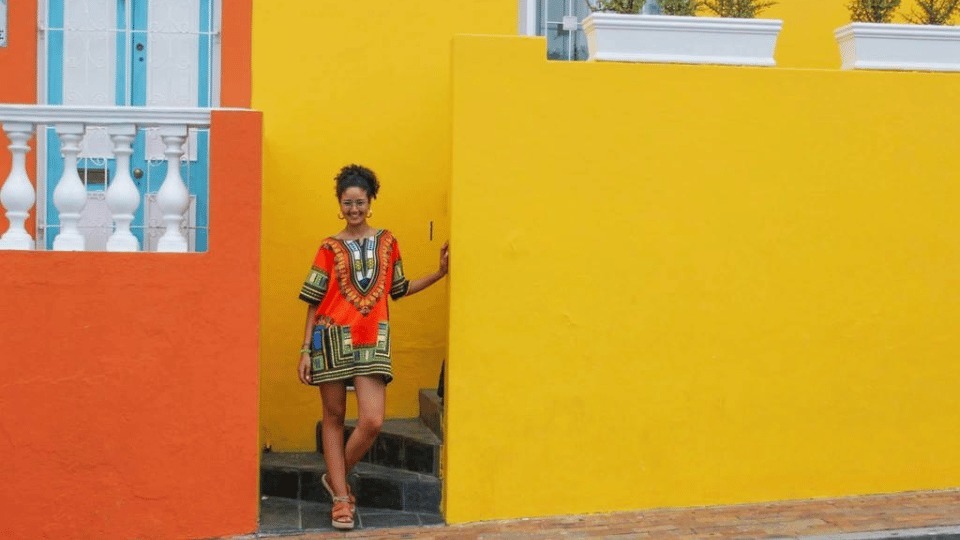
Determine your budget
“If you're thinking about traveling — either solo or with people — don't wait. It's never been easier to travel on a budget, thanks to the deluge of cheap flights, travel hacking, and the sharing economy. Don't keep your travel dreams on the backburner. Get out there and see the world!” - Nomadic Matt
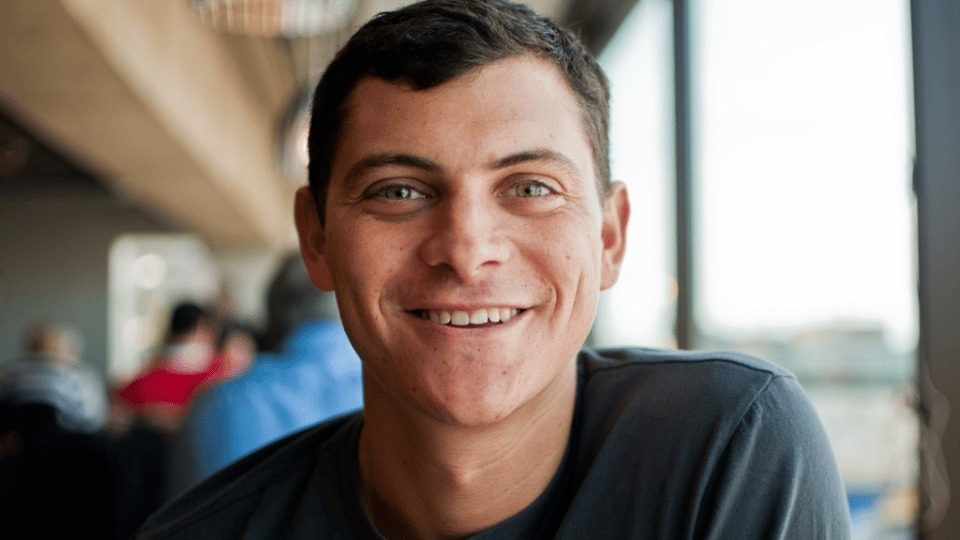
Once you have chosen your destination, decide how much money you can afford to spend on your trip. This will help you determine the length of your trip, the type of accommodation you can afford, and the activities you can participate in. Here are some general tips travelers can follow to save money on their first solo trip.
Find a travel buddy: Finding at least one travel buddy can halve your expenses for things like car rentals, fuel, accommodations, and in some cases activities. Finding more than one travel buddy can help you save even more.
Travel off-season: Consider traveling during off-peak seasons to save money on flights, accommodations, and activities.
Stay in hostels: Hostels provide affordable accommodation options and an opportunity to meet fellow travelers. Some hostels also have communal kitchens, which can help you save money on food.
Use public transportation: Opt for public transportation instead of taxis or private cars, which can be more expensive.
Eat local food: Try local street food or markets instead of eating at expensive restaurants.
Plan ahead: Book activities and tours online in advance to take advantage of discounts.
Be flexible: Flexibility can help you save money on travel arrangements. Consider traveling on weekdays instead of weekends for cheaper rates.
Use travel rewards: If you have a credit card with travel rewards, use them to offset the cost of your trip. You can also earn points by booking flights and hotels through certain websites or apps.
Consider volunteering: Volunteering is a cost-effective way to travel, as many organizations offer free or low-cost accommodations in exchange for volunteer work.
Enjoy free activities: Many cities offer free activities and attractions, such as museums, parks, and walking tours. Take advantage of these opportunities to explore your destination while saving money.
Here’s some tips from experienced solo travelers on how they manage their costs when they travel:
“I tend to research the cost of destinations in advance, stay in hostels and eat street food or cook my own meals rather than eat in restaurants.” - Rose

“I can book all the accommodations and tickets beforehand. This way, I save a huge amount of money - remember: I’m a poverty-jetsetter. Hence, I travel in style with a little luxury at a low price.” - Renata

“Budgeting is one of the hardest things about travel. The old adage that you should halve the number of clothes you pack and double the money you take is 100% accurate!
I use a combination of hostels, hotels, and more recently Airbnb to save on expenses.
Airbnb is great for long-term travel as if you book a place for a month you can save up to 70%. I spent September in Croatia, October in Macedonia, and the last month in Turkey this way.” - Steve
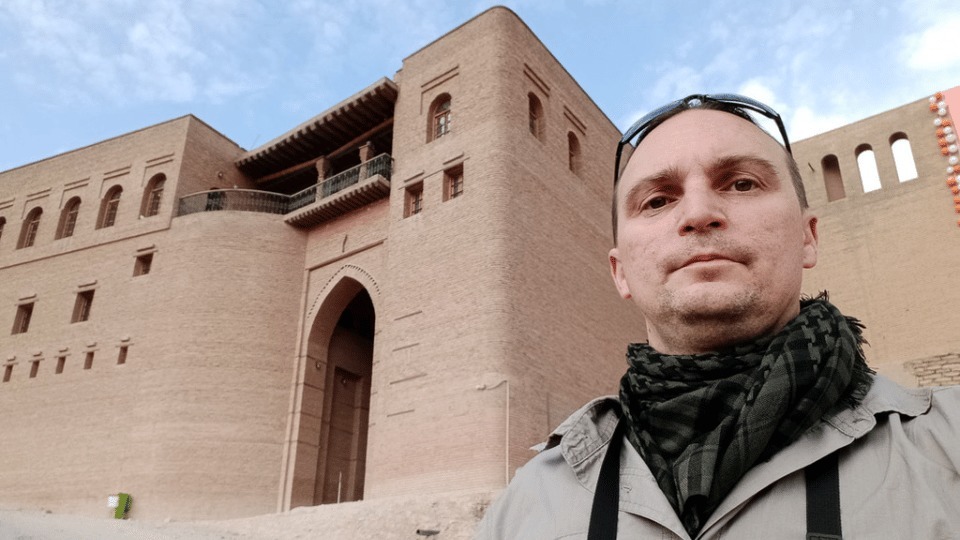
“For each day, I list where I’ll be staying that night, what activities I’ll be doing, and any transport I’ll need to use. Activities can of course be rearranged based on the weather or the people I meet – this is just for budgeting purposes! In a column to the side, I’ll then list the corresponding prices for each item. I then try to find an estimate from travel blogs on that destination for how much I can expect to spend on food each day (this depends heavily on whether I am in a hostel with a kitchen or not), and I multiply that estimate by the number of days of the trip. Then, I add in the costs of my flights in and out, as well as my travel insurance, and that gives me my total budget for the trip.” - Em
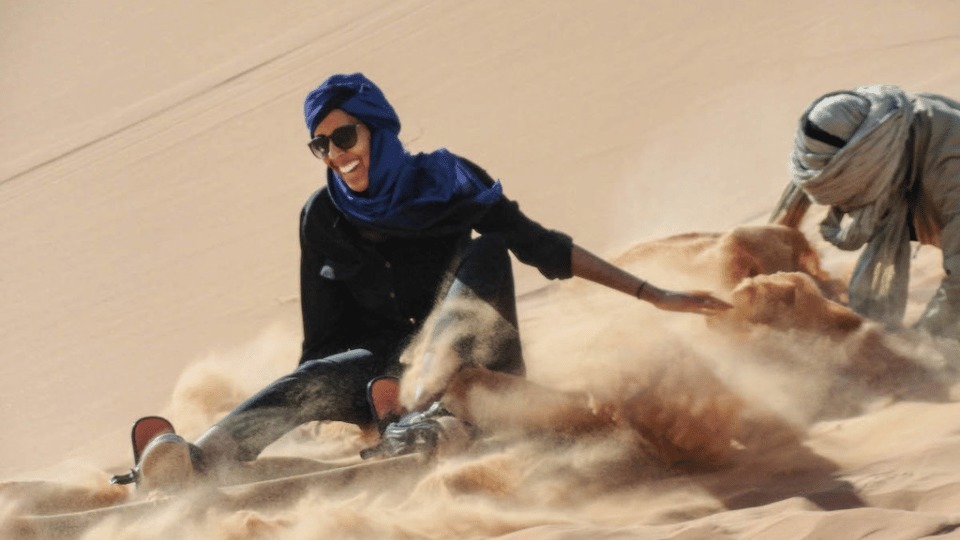
Book Your Flights
When booking flights for your solo trip, it's essential to find options that fit your budget and schedule. Be sure to search for flights to your destination thoroughly, taking note of the arrival and departure times that work best for you. As a first-time solo traveler, it's highly recommended to aim to arrive during the day. Not only can arriving during the day save you money on transportation to your accommodation, but it can also be safer. With more transportation options available during the day, you can avoid the higher cost of nighttime transportation, and you'll be surrounded by more people, making you feel less alone in a brand new destination. To help you make the most of your search, here are some additional tips to keep in mind when booking your flights.
Be flexible with your travel dates: Flying on weekdays, especially Tuesdays and Wednesdays, can be less expensive than flying on weekends. Therefore, try to be flexible with your travel dates when searching for flights.
Book early: Booking your flight at least two to three months in advance can help you secure lower rates.
Use price comparison websites: Websites like Skyscanner and Google Flights can help you compare prices across different airlines and find the cheapest deals.
Look for airline deals: Keep an eye out for sales and promotional deals that airlines often run. Sign up for newsletters and follow airlines on social media to stay informed.
Consider layovers: Sometimes, taking a flight with a layover can be cheaper than a direct flight. Just make sure to check the layover time and airport location.
Use the "Everywhere" function: If you're unsure of your destination, consider using the "Everywhere" function on websites like Skyscanner to find the cheapest flights to any location.
Book directly with the airline: Booking directly with the airline can sometimes be cheaper than booking through a third-party website.
Use reward points: If you have a credit card that offers travel rewards or points, use them to book your flights. Some credit cards also offer discounts on flights booked through their websites.
In regards to travel points, it really works, and we’ve interviewed solo travelers who have saved a lot of money using points:
“Furthermore, travel points or rewards have greatly helped me save a lot of coins ; for instance, I was able to book a RT flight to Puerto Rico for $11 with travel points.” - Stephanie
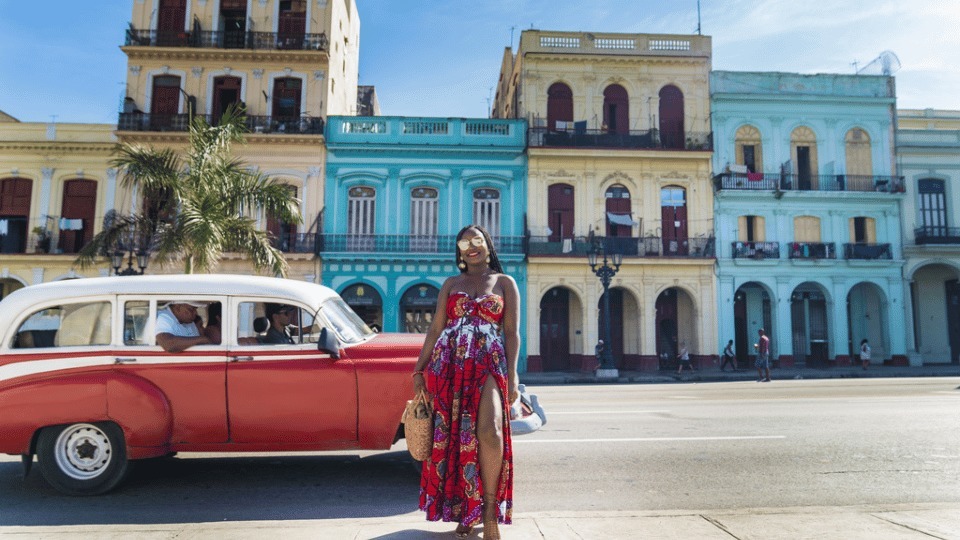
“I usually fly with Delta Airlines because I have their credit card which gives me points, so I like the Fly Delta app too.” - Stella
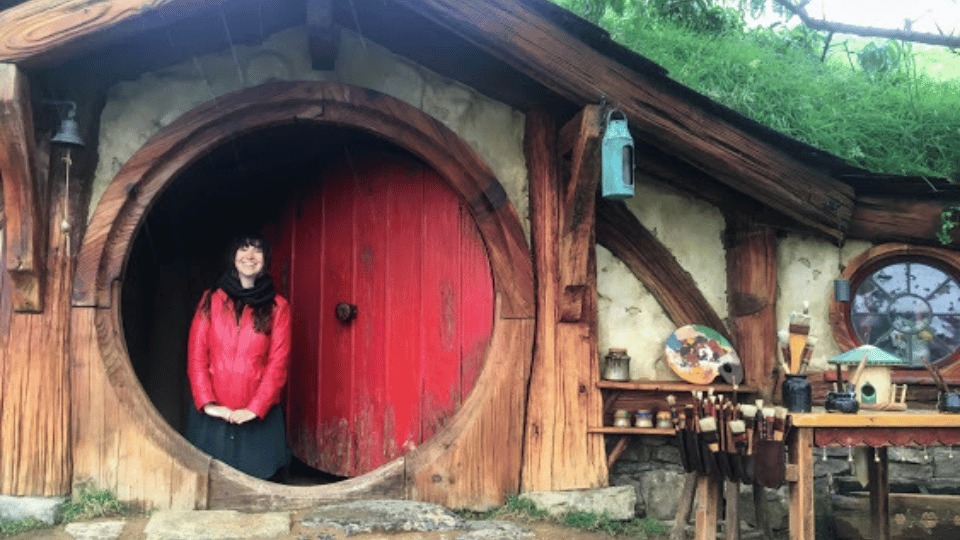
Book Your Accommodation
One of the most important steps in planning your solo adventure is booking accommodations. Doing so in advance can not only save you money, but also ensure that you have a comfortable and convenient place to stay.
Before you start booking, it's important to research the different types of accommodation available in your destination. Hotels, hostels, guesthouses, and vacation rentals all offer different benefits and drawbacks depending on your budget and preferences. For example, hotels may offer more amenities and privacy, but can be expensive. Hostels are often more affordable, offer opportunities to meet other travelers, and are great for solo travelers on a budget. Guesthouses can provide a more local and authentic experience, but may have limited facilities. Vacation rentals offer more space and privacy, but can be costly and may require more effort to organize.
By researching and booking your accommodation in advance, you can save money and ensure that you get the best deal possible. Many hotels, hostels, and vacation rentals offer early bird discounts or special rates for long-term stays. Booking early also gives you a wider range of options to choose from and allows you to compare prices and amenities more effectively.
Hostels: For solo travelers, hostels are often a great choice. Not only are they budget-friendly, but they also offer a social atmosphere that can be especially appealing to those traveling alone. Many hostels offer shared dorm rooms or private rooms at affordable prices, making them a great option for travelers who want to meet new people and save money at the same time.
Vacation Rentals: Airbnbs with hosts are also a great choice for solo travelers. Unlike traditional vacation rentals, Airbnbs offer a more personal touch and allow you to connect with local hosts who can provide recommendations and insider tips for your trip. Having a local host can also make you feel more at home in a new place, providing a sense of security and comfort.
Hotels: Hotels with common areas such as pools, bars, or events can also be a great option for solo travelers. These areas provide opportunities to meet other travelers and socialize, which can be especially important for those who are traveling alone. Additionally, hotels often offer amenities such as free breakfast, fitness centers, or airport shuttles, which can make your trip more convenient and enjoyable.
Here are some tips for booking accommodations from experienced solo travelers:
“One of the best ways to meet people when you travel, and also to have a very culturally rewarding experience (AND to save a ton of money!) is to volunteer in trade for free accommodation. I’ve made so many friends around the world this way, and it’s so much more enriching than staying in hostels and hotels. All in all, I saved over $100,000 on accommodation by getting it for free around the world, and volunteering is just one way to do it.” - Nora
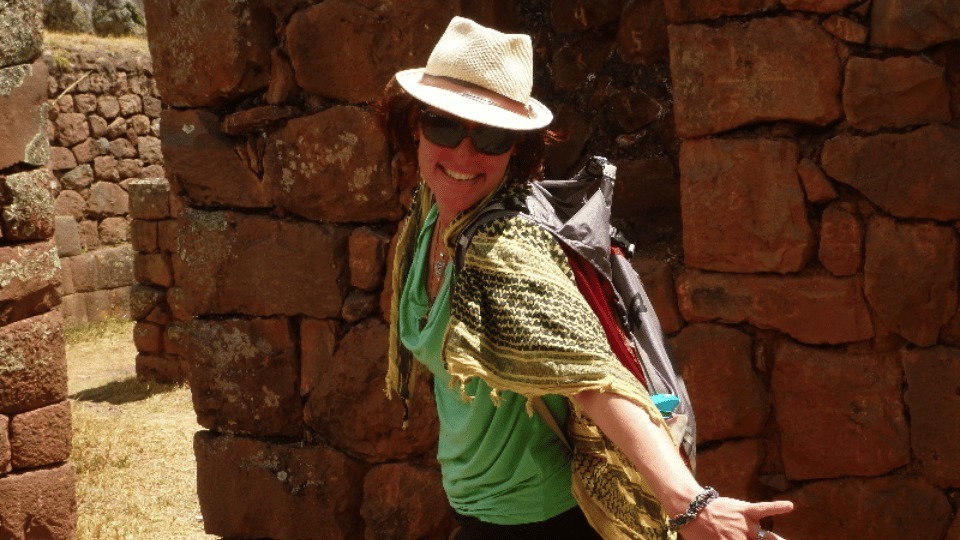
“Once you’re more advanced and comfortable with solo traveling, and want to be more flexible with your itinerary you can book last minute accommodations to adjust to your travel plans while you’re on the go. I book the accommodations only at the very end. If I still want to adjust my route while traveling, I even book them at the last minute at the destination.” - Carolin
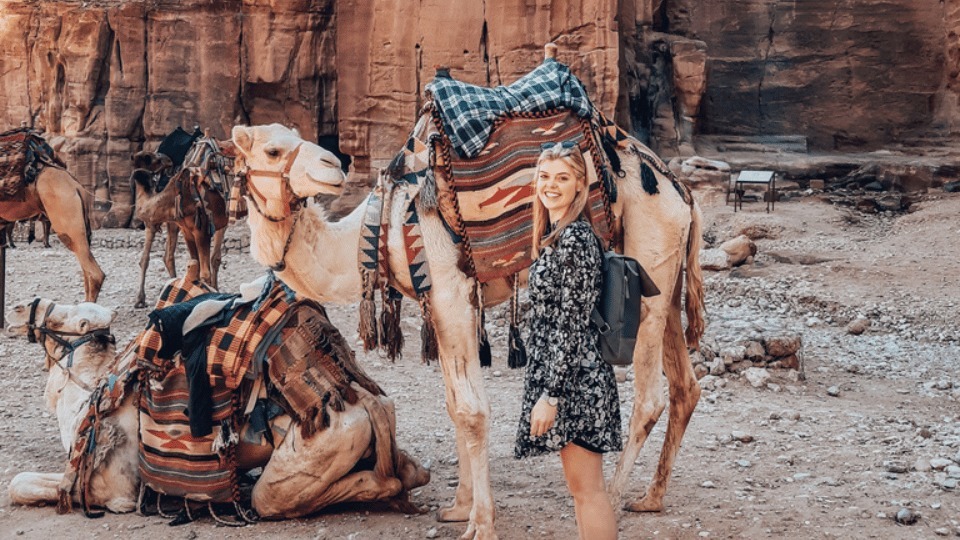
“For example, when possible I like to book Airbnbs for over 4 weeks - there is usually a hefty discount. Plus, you have your own apartment. This is crucial for me with work and traveling with a dog. I usually spend less than $700 USD per month on accommodation (less than my rent in the States). I also like traveling to places that have a weaker (or similar) currency than USD, or places that are low-cost in general. Ecuador, Romania, Hungary, etc. are some examples of great places to visit on a budget. You can live like a king without spending like one.” - Jade
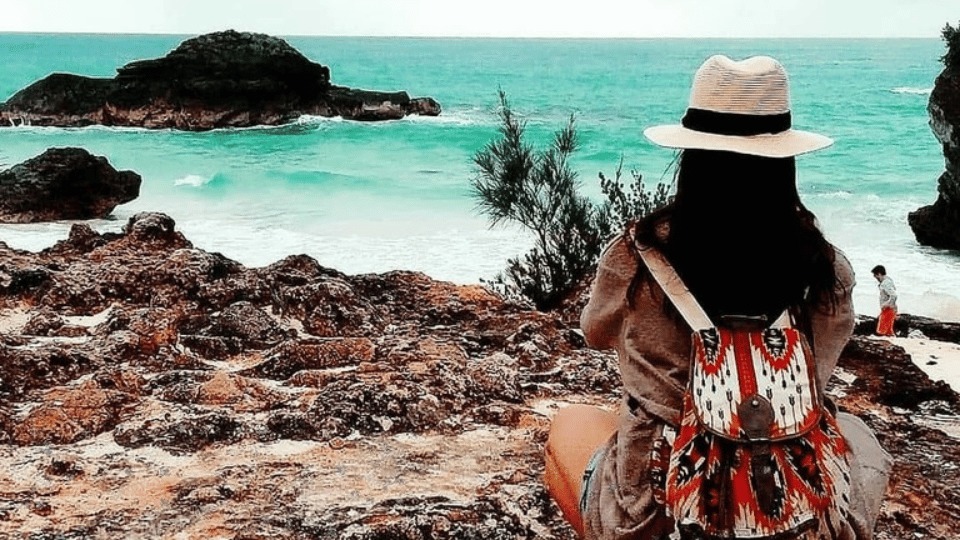
Plan Your Itinerary
Making a list of the places you want to visit and the activities you want to do is a crucial step in planning your itinerary. By creating a comprehensive list, you can ensure that you don't miss out on any must-see attractions or experiences.
Research the opening hours, admission fees, and transportation options for each place on your list: Doing this will help you to avoid any surprises or disappointments, such as arriving at a site only to find that it is closed or not being able to afford the entrance fee. Researching transportation options will also help you to plan your time and budget accordingly.
Remain Flexible: Unexpected events can occur, such as bad weather or a sudden change in your personal plans. Being flexible will allow you to make the most of any unforeseen circumstances and adjust your itinerary accordingly. Perhaps a sudden rainstorm will force you to switch to indoor activities, or you may meet other travelers who recommend alternative destinations.
Read travel blogs and watch vlogs: These resources can provide valuable insight into local customs, attractions, and activities that may not be included in traditional travel guides. Additionally, reading about other travelers' experiences can help you to prepare mentally and emotionally for the challenges and rewards of solo travel.
Planning an itinerary is essential not only for first-time solo travelers but for anyone taking a trip. To reinforce this point, we've gathered some insights from seasoned travelers on how they plan their itineraries:
“I do a lot of planning before a trip and love to research a destination. Some of the ways I prepare include reading blogs about the area, using All Trails to discover the best nearby trails, and using Google Maps to save interesting locations. I always make sure to have anything I need booked ahead of time (rental car, hotel, etc) and typically create a flexible itinerary for the trip.” - Lydia
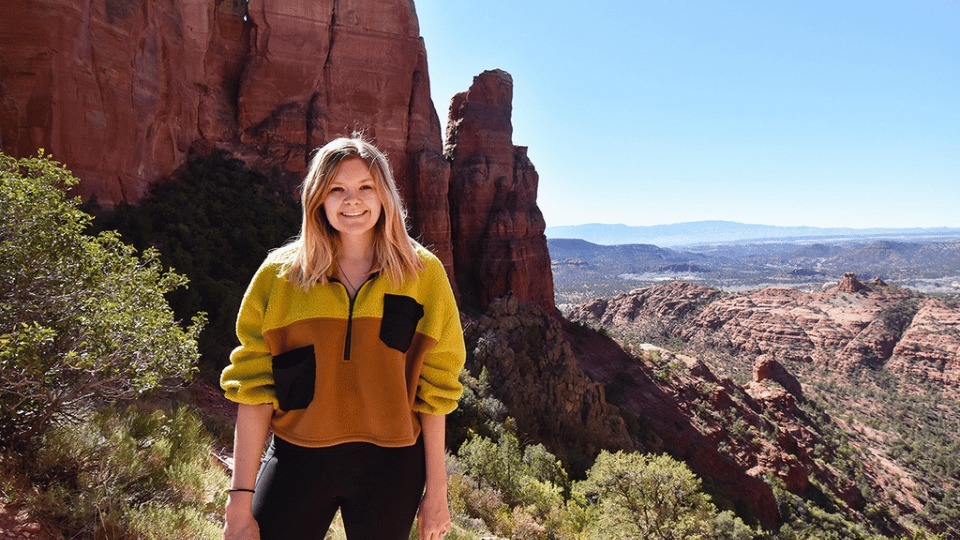
“We search for places that are cultural or have beautiful nature. Suppose we can combine the two on our trip – even better. Each trip is different depending on how long we need to see what we want to see, sometimes it might be a weekend, but we have made some month-long road trips too. After this, we begin to create an itinerary, decide where we want to go and see. As we love road trips, this can mean a different place every night or every couple of nights, so we decide how long in each location, the distance between the two, and where it is affordable to stay in that area.” - Rachel & Nico
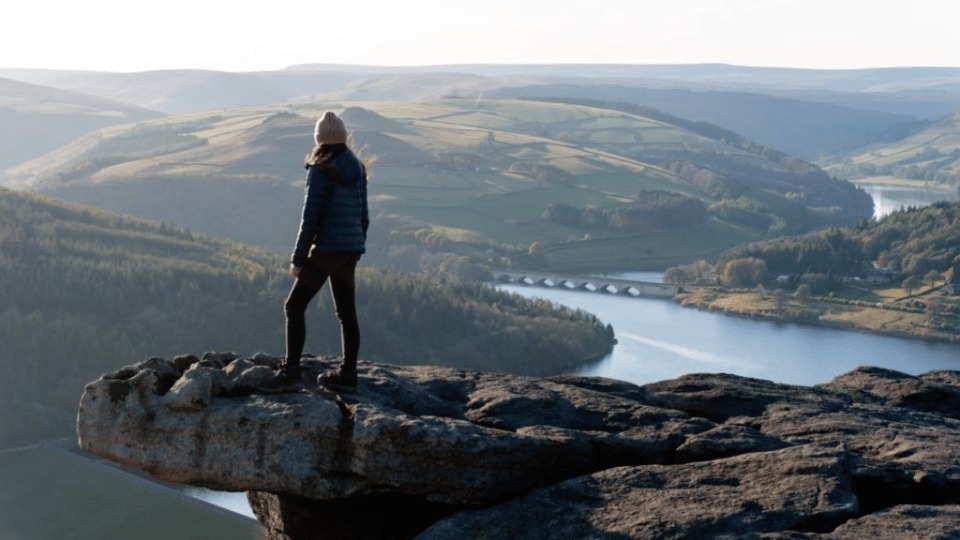
Pack Your Bags
Solo travelers need to consider several important things when packing for their first solo trip. Here are some key considerations:
Destination and Weather: Research the destination's climate and weather conditions before packing. This will help you determine the appropriate clothing, footwear, and accessories to bring.
Length of Trip: Determine the duration of the trip and pack accordingly. Avoid packing too much, especially since you’re traveling solo, as it can be cumbersome to carry and manage your luggage alone.
Purpose of the Trip: Consider the purpose of your trip and what activities you will be doing. Pack appropriate clothing and gear for any planned activities, such as hiking, swimming, or attending a special event.
Travel Documents: Make sure to bring all the necessary travel documents, including your passport, visas, travel insurance, and any other relevant documents.
Personal Care Items: Bring essential personal care items, such as toiletries, medications, and first-aid kits, to ensure your health and comfort during your trip.
It is important for solo travelers to pack light for several reasons. It makes it easier to move around, especially if you are using public transportation or walking around. It also reduces the risk of losing or misplacing items, which can be stressful, especially when traveling alone. Packing light also allows you to be more flexible and spontaneous, as you can easily change your plans without worrying about the logistics of managing your luggage. Finally, packing light can help you save money on luggage fees, especially when traveling by air.
Here are how some seasoned solo travelers pack for their trips:
“I pack for my trips by first looking through a packing list or two online. Even if I know most of what I need, it gets me excited for my trip and helps ensure I don’t forget any important details. I try to pack as light as possible. I’ve recently started traveling only with carry ons. After traveling for 3.5 months this summer, I realized how little I actually need and it makes moving between destinations so much easier.” - Hailey
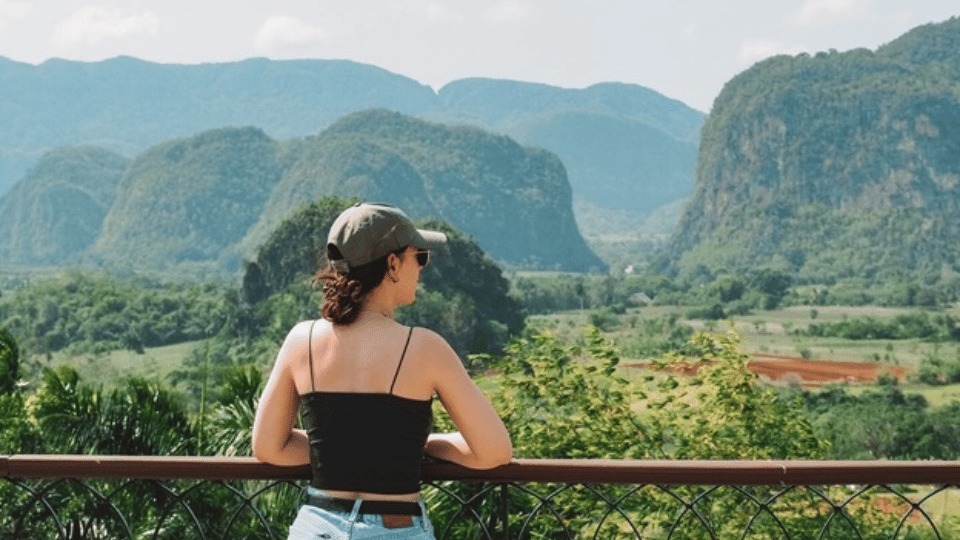
“I try to travel as light as possible, but that isn’t always the easiest thing for us gals. I pack multifunctional wardrobe staples like jeans and neutral-colored clothing and ensure I wear the bulkiest pieces such as sweaters and sneakers to save space in my suitcase or carry-on. Swimwear and sandals are must-haves because I always make time for a water body.” - Elle
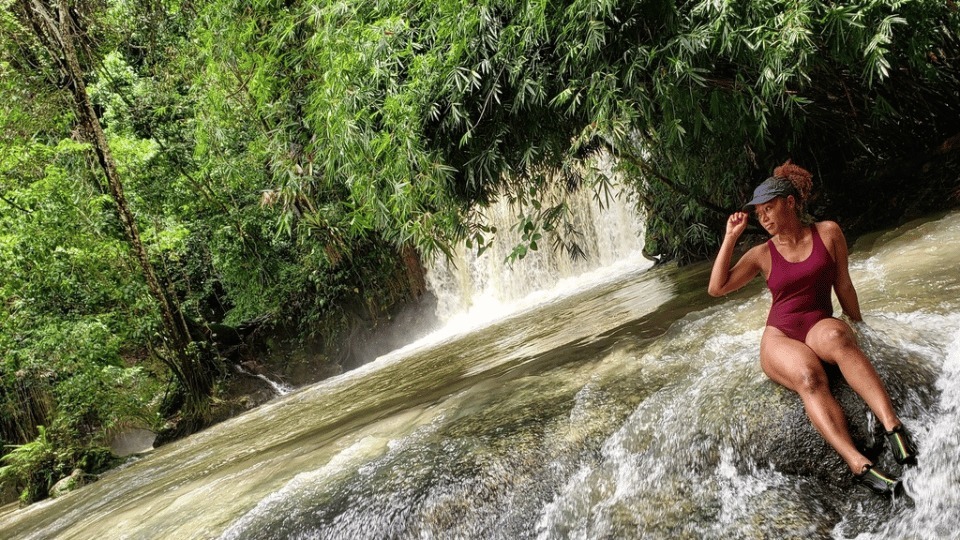
"I always carry a pen — sounds simple but they’re impossible to find when you need one to fill out customs forms or other paperwork on the road. I pack a collapsible water bottle and try to keep it filled on my journey as an emergency backup. I take cash and hide cash and cards in different compartments in my bags, in case one gets lost. I use packing cubes to separate the types of clothing I’m bringing and always have a tripod for taking my own pictures. Beyond that, I go light on equipment, usually relying on my iPhone to be a map, translator, currency converter, alarm, and means to contact friends and family back home. Since I use my phone for so many things, two other essentials are a backup battery and a local SIM card." - Jen

“I have a 45 L backpack that I carry everywhere. I use it for multi-day hiking trips but also for traveling in general. I found that 45 L is spacious enough to hold all the essential items but small enough to carry on planes and allow me to walk long distances.” - John
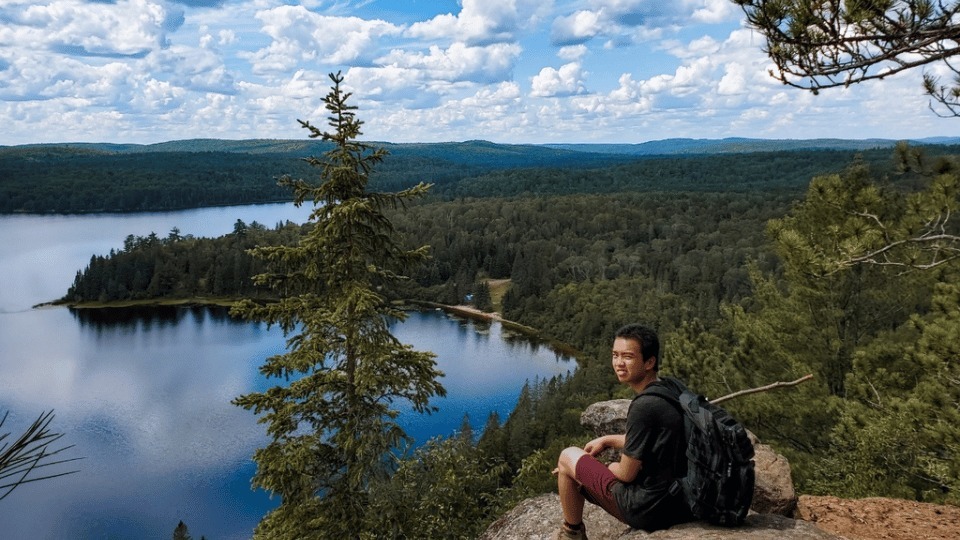
Prepare For Emergencies
Emergencies can happen at any time and in any place. Whether it's a natural disaster, a medical emergency, or a travel-related mishap, being prepared can help you to stay safe and minimize the impact of any unexpected events.
Make copies of your travel documents and store them in different places: This includes your passport, visa, travel insurance policy, and any other important documents. By keeping multiple copies in different locations, you can reduce the risk of losing everything if your luggage is stolen or if you misplace your documents.
Research the emergency contact information for your destination: This could include the phone numbers for local emergency services, your embassy or consulate, and any medical facilities that you may need to visit. Having this information readily available can help you to respond quickly and effectively in an emergency situation.
Keep some cash on hand: In case you are unable to access your bank account or credit cards due to unforeseen circumstances, having a small amount of cash in different currencies can be helpful, especially if you are traveling to a country where ATMs may be scarce or unreliable.
Get travel insurance: Having travel insurance can provide you with coverage for medical emergencies, trip cancellation or interruption, and other unforeseen events. Be sure to carefully read the policy and understand what is covered and what is not, and keep a copy of the policy with your other travel documents.
Let people know about where you are going ahead of time: Let friends or family members, as well as your hotel or accommodation provider know where you will be going. Providing someone with your itinerary and contact information can help you to stay connected and ensure that someone knows where you are in case of an emergency.
Here’s how Katie plans for emergencies on her hiking trips:
“When I set out on a hike, I always make sure I have enough food and water, a fully charged phone, tell someone where I am going, and always have a map of the trails and surrounding area. A winter hike along the snowy and white blazed Long Trail in Vermont where we were lost in deep snow and a backpacking trip in New Hampshire where I was not fit enough for the mileage we tackled, both truly humbled me in the safety department. When I head out, I tend to be overprepared with a heavier than needed pack with a first aid kit, extra layers, and other important safety gear depending on the season.” - Katie
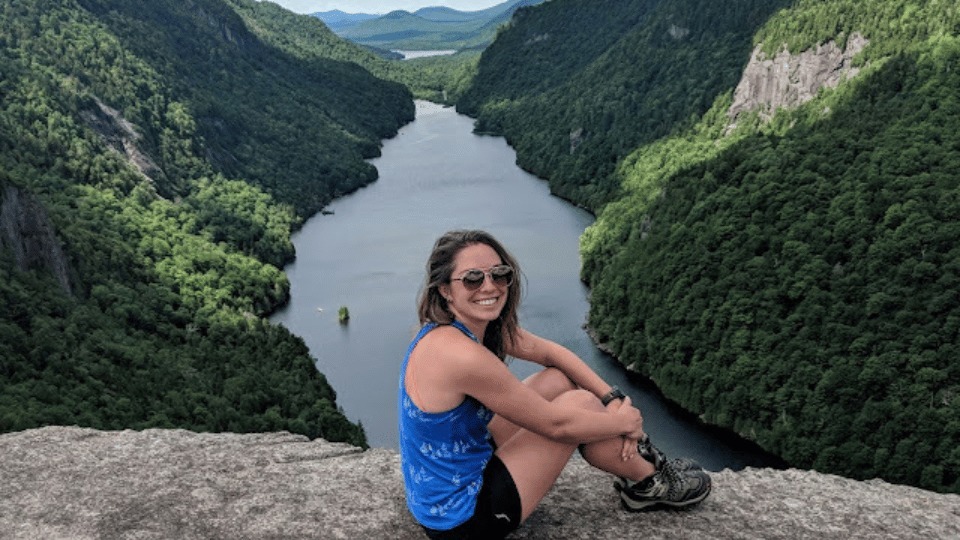
Use Technology & Apps
Using technology and apps like maps, offline Google Translate, currency conversion, banking apps, and debit/credit cards can be incredibly helpful for first-time solo travelers. Here are some reasons why:
Navigation: Maps and offline maps can help you to navigate unfamiliar areas and find your way around your destination. You can use them to plan your route, find nearby attractions, and locate important landmarks or amenities like ATMs, hospitals, or police stations.
Language barriers: Offline Google Translate can help you to communicate with locals who may not speak your language. You can use it to translate signs, menus, and other written text, as well as to have basic conversations with locals.
Currency conversion: Currency conversion apps can help you to understand the value of the local currency and make sure that you are not being overcharged for goods or services. This can help you to avoid scams or rip-offs and stay within your budget.
Banking apps: Banking apps can help you to manage your finances while on the go. You can use them to check your account balance, transfer money, pay bills, and more.
Debit/credit cards: Using a debit or credit card can be a convenient and secure way to make purchases while traveling. You can use them to withdraw cash from ATMs, pay for goods or services, and avoid carrying large amounts of cash.
If you're looking for additional app recommendations, who better to ask than seasoned solo travelers? Here are some apps that experienced solo travelers have found helpful:
“My phone is filled with different travel apps, but I think the most useful ones for me are Google Maps (I star all the places I want to visit and save maps for offline use), Google Translate (I love saving languages for offline use and their instant scan option), TripIt (for organizing itineraries), Splitwise (for sharing costs with friends), and Omio (for searching and comparing all transport options from Point A to Point B).” - Christina
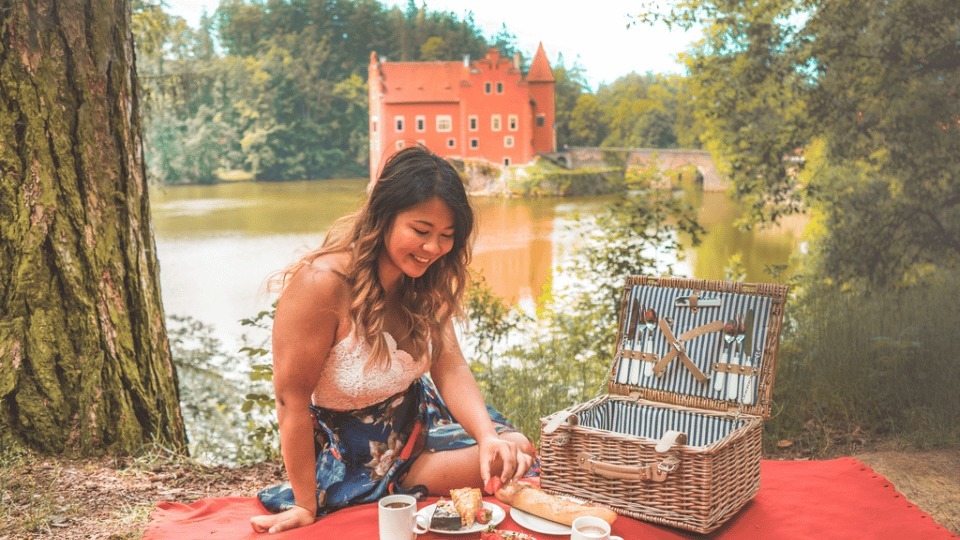
“Another app I use is Countries Been which helps me keep track of places I’ve been, lived, and want to go to.” - Francesca
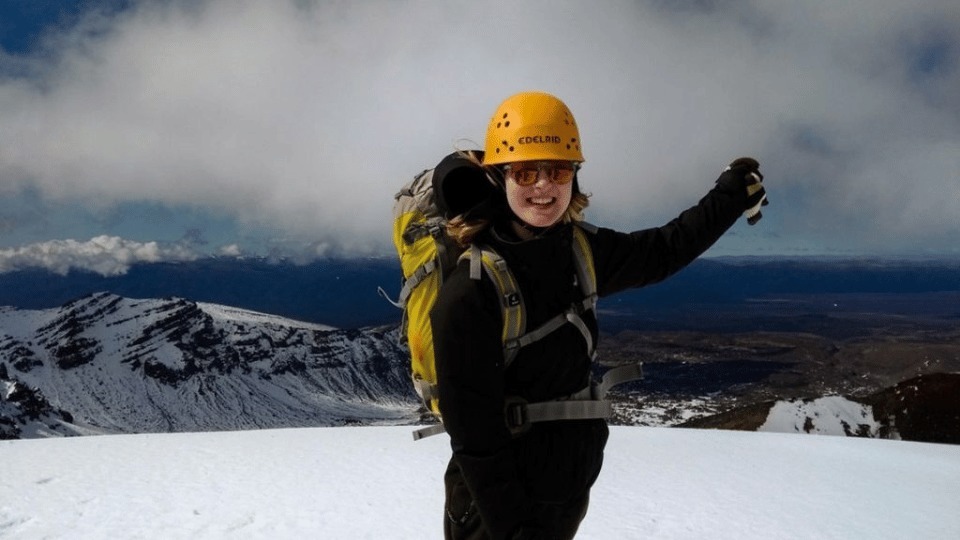
“Apps I use when travelling include Maps.ME as it’s offline. I really would be “lost” without it! A good VPN to keep my connection secure and access restricted sites such as Google when in countries that don’t have a free internet.” - Steve

“Skyscanner and Booking for flights and accommodations Get Your Guide and Airbnb for tours and experiences. During the trip itself, in Europe I usually only use Google Maps to mark the places I want to visit and to navigate.” - Or
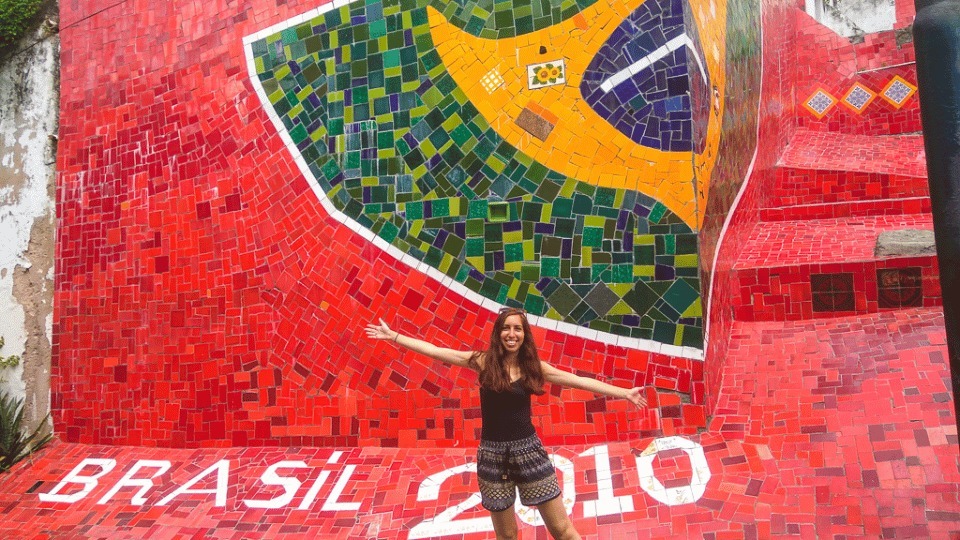
Stay Safe
Researching the safety and security situation in your destination is crucial because it helps you prepare for any potential risks and take necessary precautions. By understanding the safety situation of your destination, you can make informed decisions about your travel plans, such as avoiding high-risk areas or times of day.
Registering with your embassy or consulate: This is important because it allows your government to contact you in case of an emergency such as natural disasters, civil unrest, or terrorism. Consular officials can also provide you with assistance if you lose your passport or are the victim of a crime.
Connect with other travelers: Finding travel companions can add an extra layer of safety to your trip, as you can watch out for each other and share the costs of accommodation and transportation. You can find travel companions through social media groups, travel forums, or apps like GAFFL which are designed specifically for finding travel buddies.
Connect with locals: Getting to know someone local in your destination can also be beneficial for solo travelers, as locals can provide you with valuable insights into the local culture, customs, and safety concerns. They can also give you tips on how to stay safe and avoid scams.
Familiarizing yourself with the seasons of your destination: This is very important because it helps you pack appropriately and prepare for any weather-related risks. For example, if you're traveling to a destination during hurricane season, you may want to purchase travel insurance to protect yourself in case of a storm.
Research common scams: Reading up about any scams or dangers of a place can help you avoid falling victim to common scams and keep you safe. For example, if pickpocketing is common in your destination, you can take precautions such as carrying a money belt or leaving valuables in a secure location.
Here's some insight from experienced solo travelers regarding travel scams and how you can stay safe in a new destination:
“You always have to watch out for scams while traveling, but most of the scams I’ve come across have been petty theft-type scams where you might lose a few dollars (or a few hundred).
One of the common scams is when the locals tell you a guide is required to go somewhere, and then try to force you to pay a crazy amount of money for the guide. Later on, you find out it’s an easy hike, and a guide isn’t actually required for it at all.
One of the biggest challenges for a traveler in poor countries is the lack of safe transportation. I’ve had many scary rides and close calls in cars and boats around the world.
If anything gets me while traveling, it’ll probably be something like that. We once got caught in a bad storm on the open ocean in Sumatra, and we were sure our little boat was going to sink or be shipwrecked. Traveling is not always the safest profession in the world, but I still love it!” - David
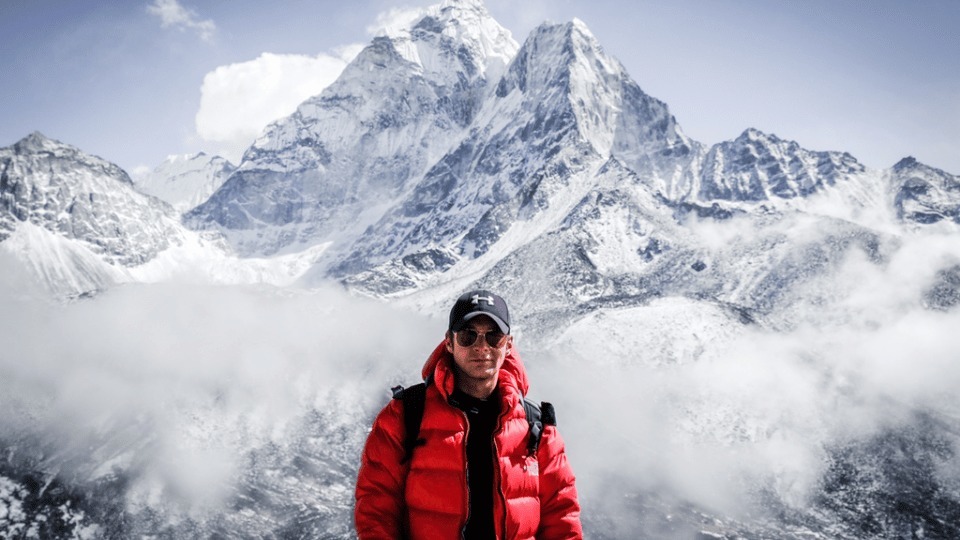
“I think the most important part of solo traveling is to be aware of your surroundings and to do your research in advance. Every city in the world comes with its own unofficial safety recommendations on what to do and what to avoid, and it is especially important for solo female travelers like myself to follow them. Safety is a subjective thing and if you do not follow the rules, even a country that is considered safe can be dangerous.” - Steph
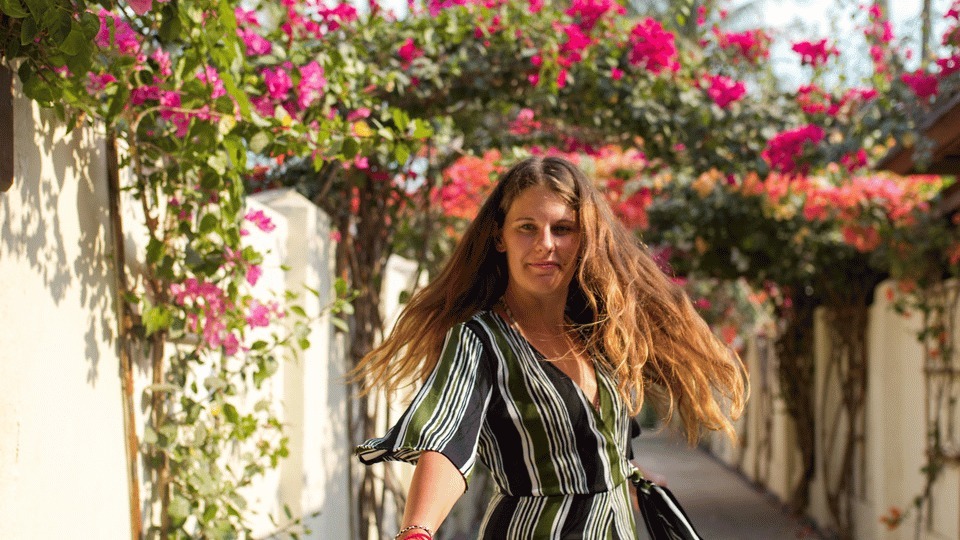
Enjoy your trip
Once you have arrived at your destination, take the opportunity to fully immerse yourself in the culture and embrace your solo adventure. Remember, this is your chance to step outside your comfort zone and have a truly unique experience. Don't be afraid to strike up a conversation with locals or fellow travelers, as they can offer valuable insights and recommendations. Embrace the unfamiliar sights, sounds, and tastes of the destination and try new things, whether it's food, activities, or customs. By being open-minded and adventurous, you may discover hidden gems and create unforgettable memories that will last a lifetime. So go ahead, enjoy every moment of your solo trip and make the most out of this amazing opportunity to explore and discover the world on your own terms.
“I wish I knew, the challenge and the uncertainty are what give you the biggest thrill. As cliché as it sounds, it is how you overcome the obstacles that help you grow as a person, if I already knew those challenges I’d be the same fool I was three years ago!
In terms of lessons, I think one of the biggest I took is that your problems are minuscule in comparison to the things are see. You do not know how lucky you are to be out there traveling in the first place. Do not take life too seriously!” - JP
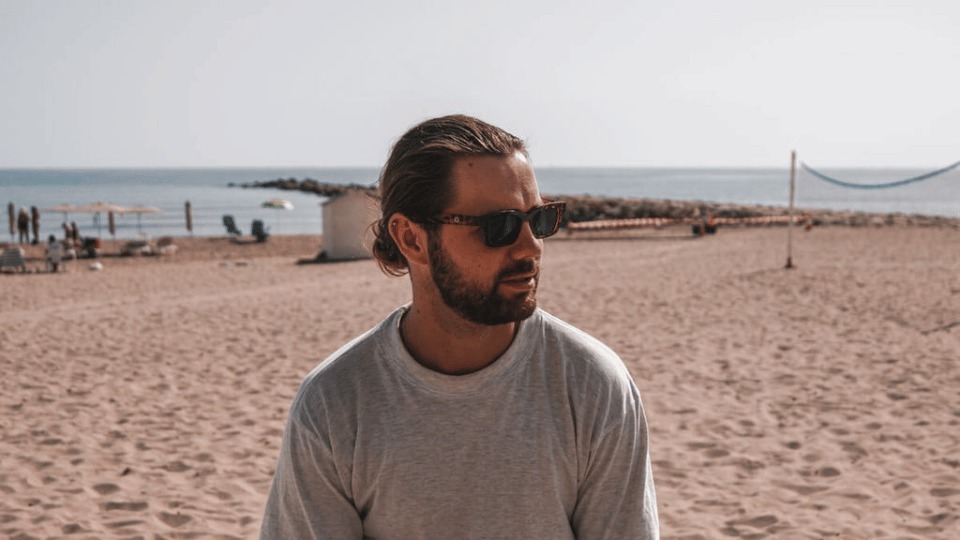
“Planning is key! If you don’t have the luxury to stay in a certain place for a longer amount of time, because you only have a limited amount of days off work, it’s important to know what places in the area you definitely want to see. It would be a shame to find yourself planning or looking up stuff to do half of the time. Or missing out on a certain activity or place because you were too late to make a reservation.
But while planning is important, always leave a bit of room for some spontaneous things, and don’t over plan your days. You’ll never know what’ll cross your path. Have a plan, but be flexible!" - Ellen
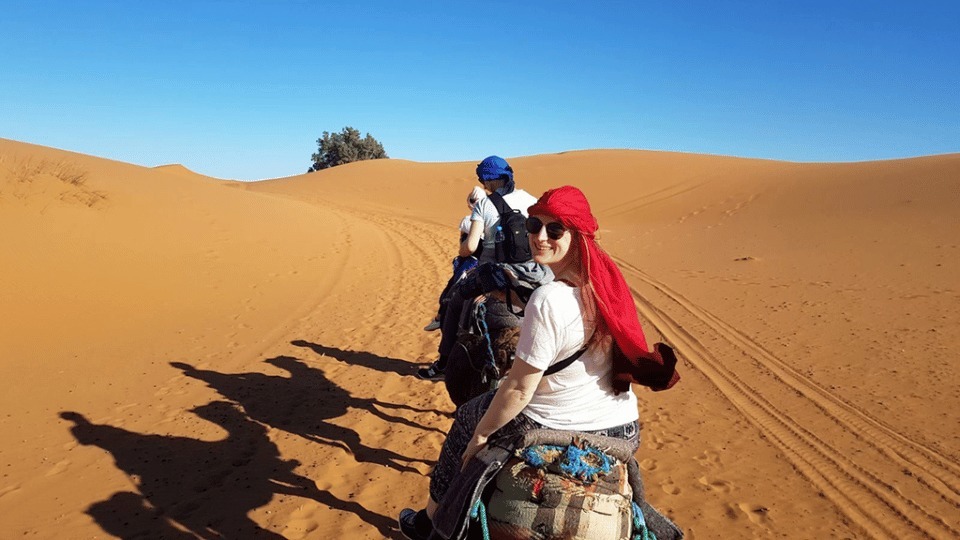
“I wish I had known it wasn’t so scary and difficult, and that you don’t need to be rich to travel! I also wish I had as much self-confidence as I do now. I can’t remember how many times I missed out on an opportunity because I was too afraid to ask or to make decisions without my friends’ approval when I was young!
The biggest lesson I’ve learned when traveling by myself is that it’s so important to spend time alone and disconnect from your routine. It forces you to adapt to change and realign with your core values and what you want in life! It’s usually during my trips that I also face some very confronting internal challenges and start thinking about solutions.
Travel has really been eye-opening for me, and I love to share my passion knowing it might help other people!” - Genevieve
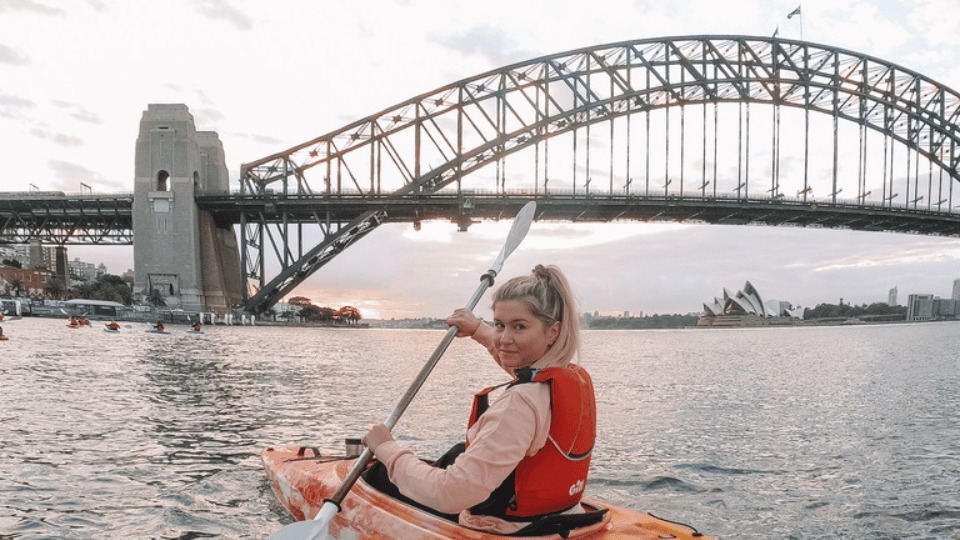
“It’s best to look up how safe a country is – and feels. Some countries are statistically safe but definitely don’t feel that way, so ask around before you choose your destination.
Stay in a hostel because it grows your chance of meeting people exponentially (keep in mind you can stay in an all-female dorm or a private room). Prepare a loose itinerary to give your trip some structure. Practice common sense. Have fun!” - Lilly
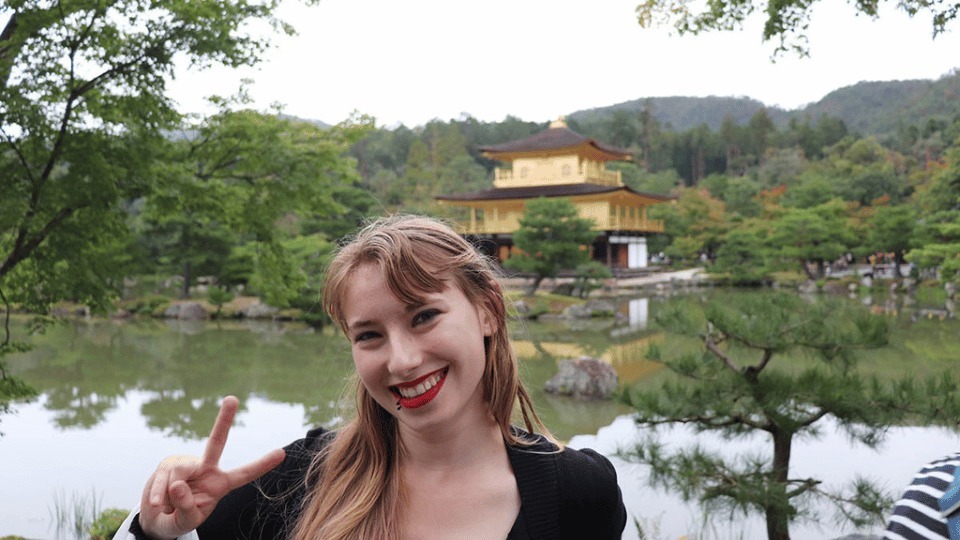
“One memory that comes to mind is when my best friend and I were scootering down dirt roads in a rural village in Myanmar. A man came out of his home to say hello to us, and we just couldn’t believe he spoke English (we hadn’t really encountered any locals who did). We spoke for a while, and he ended up inviting us inside to eat with him and his family. His wife made us all kinds of delicious food - including different curries and salads (the salads in Myanmar are incredible, especially the tea leaf salad!) - as he regaled us with tales of life in Myanmar. His family’s kindness and generosity sticks with me to this day. They didn’t have much - the floors were dirt, and the walls, just bamboo - but what they did have, they wanted to share with us. His name is Ymg Mon, and I’ll never forget that day.” - Maddy
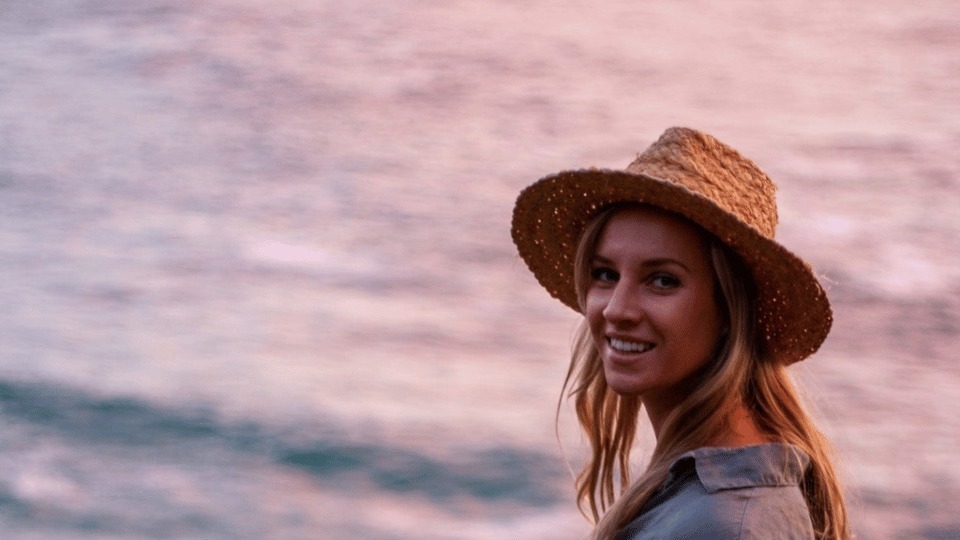
“When I went to Morocco, I was waiting outside the airport for a shuttle to pick me up and got talking to a girl who came in from the same flight from Toronto and was also waiting for (coincidently) the same shuttle. We started chatting and turns out we were both from Toronto and lived really close to each other in the city. I had hired a private tour guide for the day because I was a bit uneasy traveling around by myself in Morocco and I invited her to come with me (because I'd always rather travel around with company than without).
We had a great day in Casablanca, then went our own ways for the rest of our trip. However, we reconnected when we were back in Toronto and actually stayed close friends to this day.
I find you meet so many new "friends" while on vacation but usually you never see or talk to each other again once you're home. So this was such a great memory and an example of how travel friends can become great friends!” - Lauren
